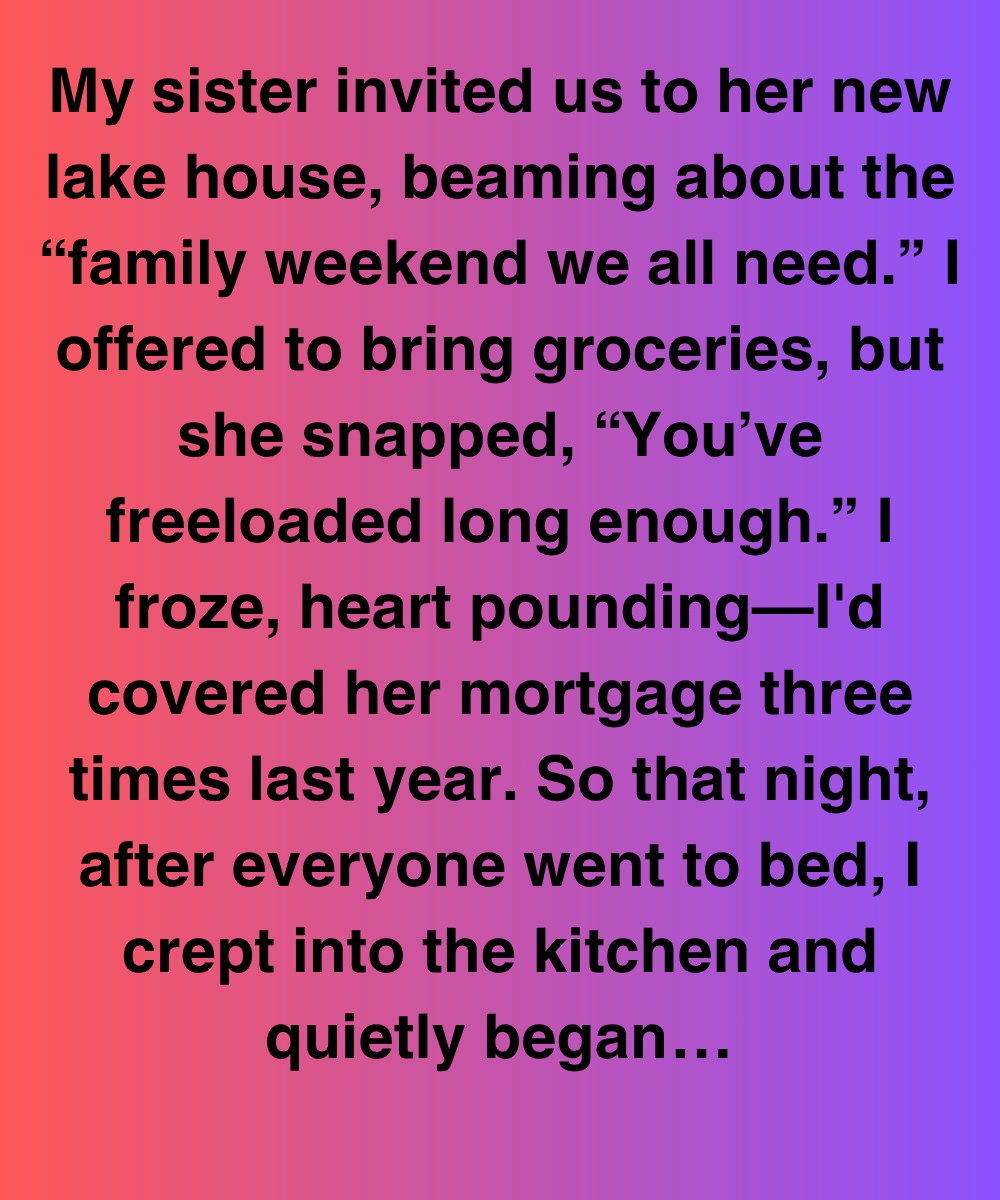Zahra greeted us on the dock like a lifestyle influencer: linen pants, sun hat tilted just so, arms wide toward the water she called “our family legacy.” I handed over the grocery bags I’d paid for and she whispered—loud enough for everyone to hear—“You’ve freeloaded long enough.” My cheeks burned; the dock seemed to tilt. She didn’t know I’d already covered her mortgage three times that year, or that I had a running list of every “small loan” she’d forgotten.
That night, while the house slept, I sat at the kitchen island and wrote it all down—braces for her son, the furnace in February, the Airbnb for Mom’s birthday she “couldn’t swing.” I folded the paper into my bag like a receipt for my own sanity, then crept back to the guest room and stared at the ceiling until sunrise.
The next day a stranger with a clipboard appeared behind the garage. Pre-inspection, he said; the house is going on the market. My stomach dropped—so the legacy was a launchpad for profit. When I confronted her, Zahra waved me off: “I earned this.” I reminded her of the mortgages I’d floated; she sneered that I acted “like some saint with a checkbook.” The conversation ended with her pushing past me, towels clutched like armor.
I stayed quiet through brunch, through paddleboards, through her performance of the perfect hostess. But quiet doesn’t mean idle. I emailed her ex-husband—who’d once asked if I knew where her money really went—and attached the list. I told him only that I was “done being used.” He replied within hours: child-support case reopened, forensic accountant hired.
Weeks later the lake house sale froze—title issues, under-reported income, a judge’s order to split proceeds. Zahra’s windfall shrank to a breeze. My parents saw the spreadsheet I’d left behind; their applause for her faded into awkward silence. One January night she texted, simply: “I shouldn’t have said what I said.” No apology, no restitution—but the admission was enough.
We’re not close anymore; we may never be. I’ve learned that family doesn’t entitle anyone to your wallet or your peace. Boundaries built with silence and paperwork can protect better than any argument. And sometimes the most generous thing you can do—for yourself and even for them—is to walk away and let the house of cards settle where it falls.
